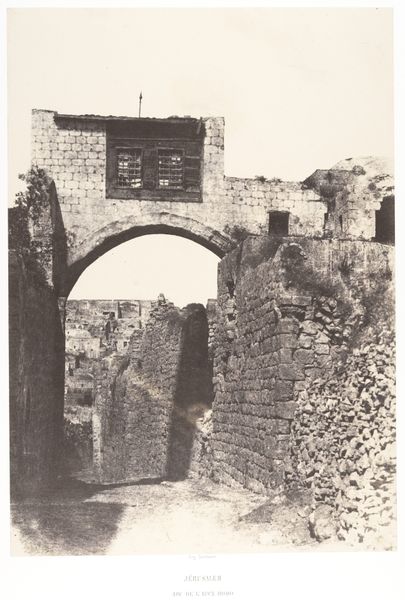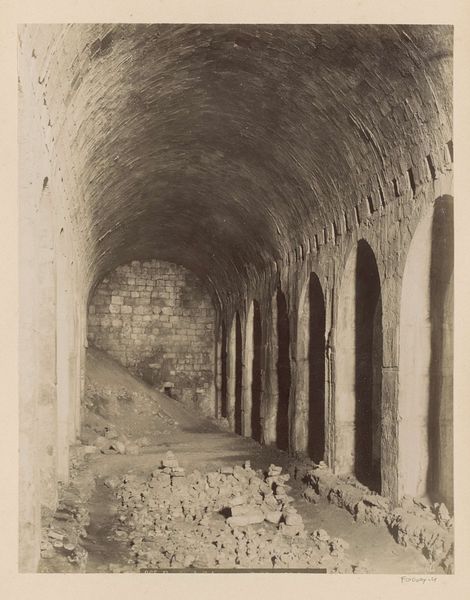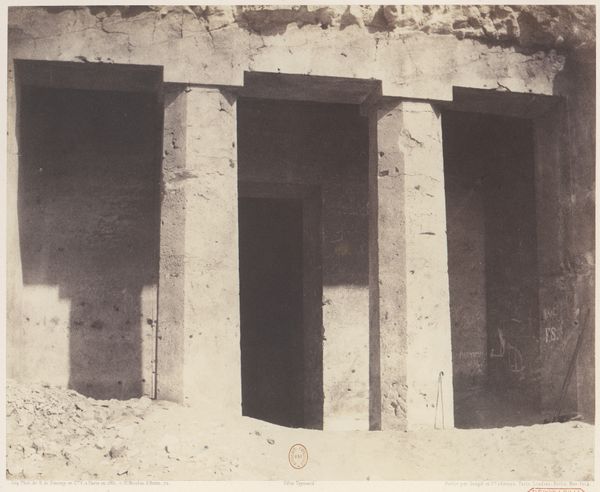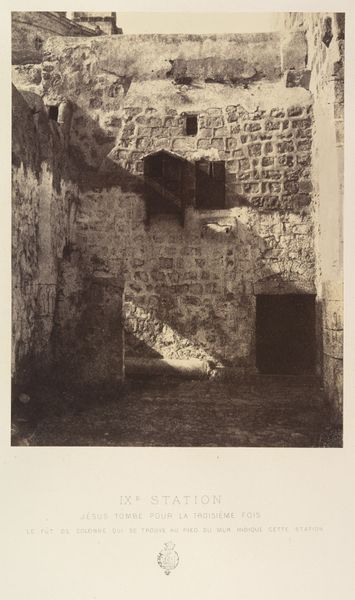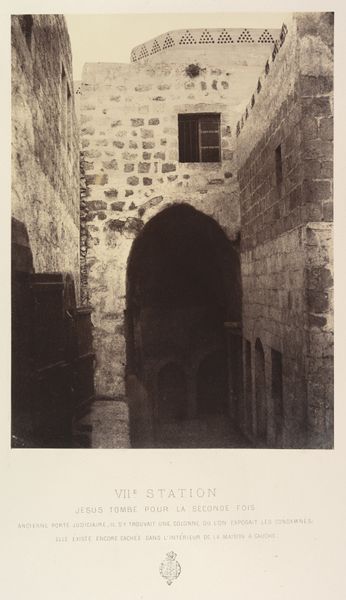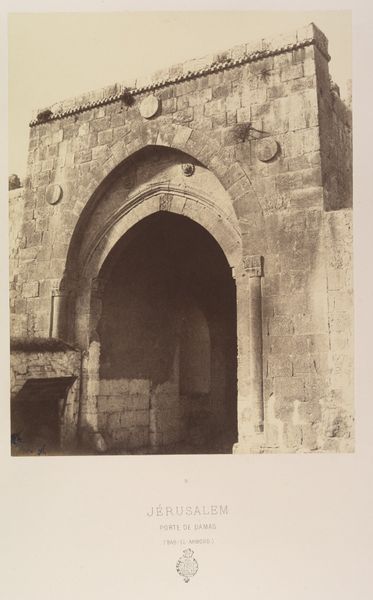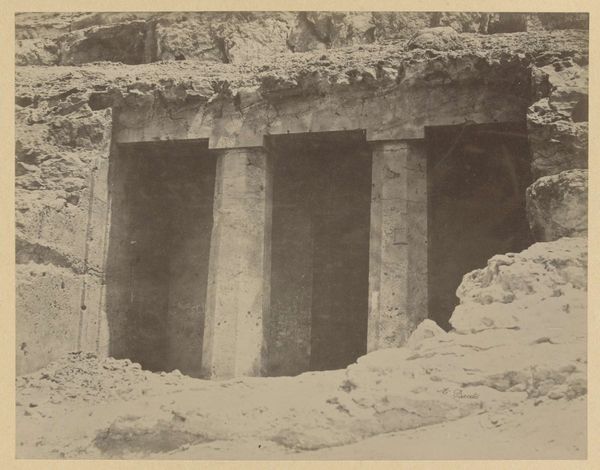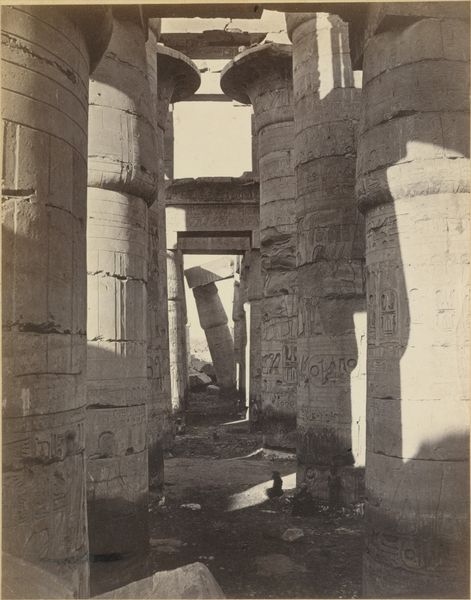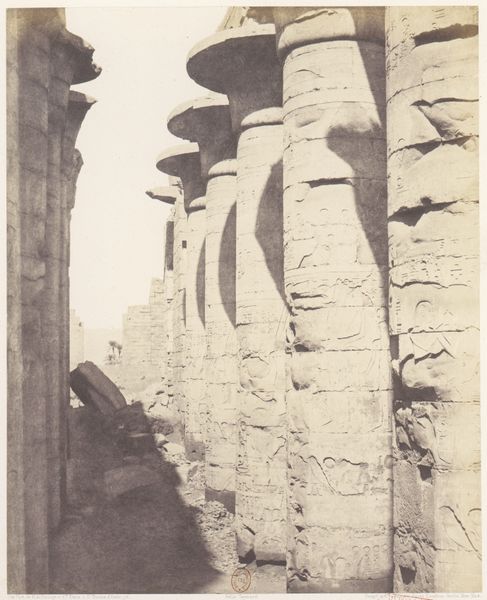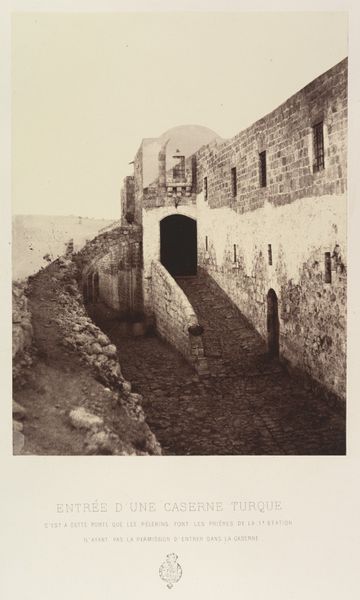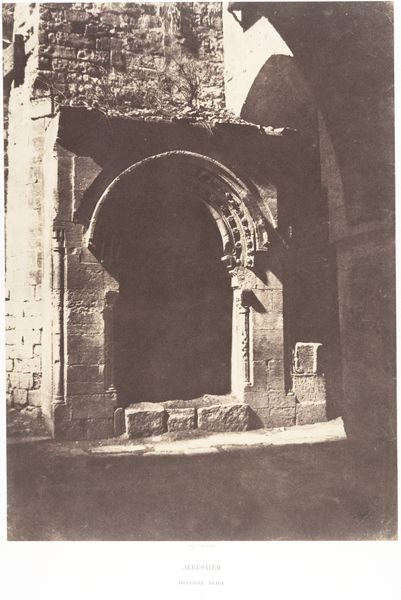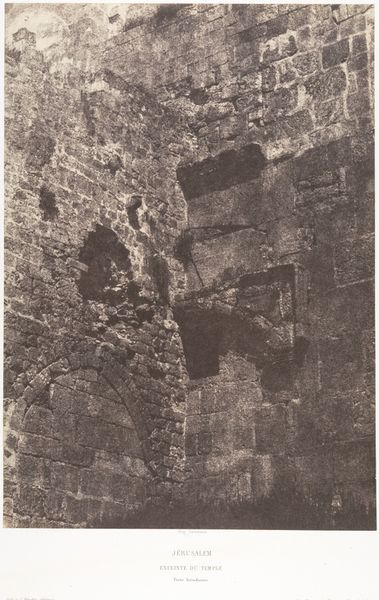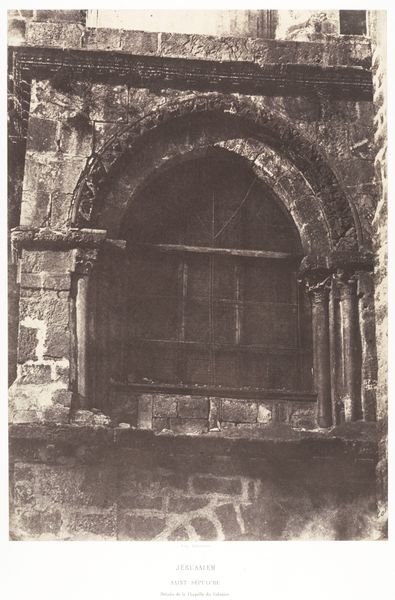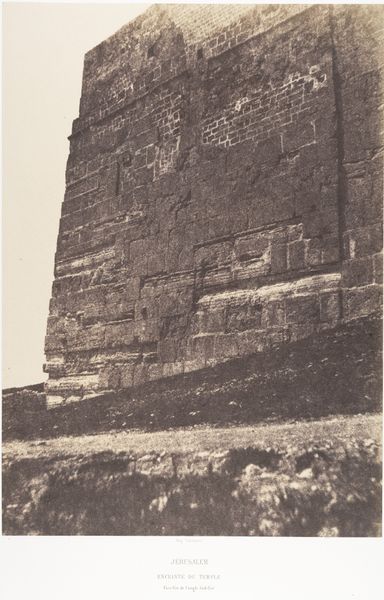
Médînet-Abou (Thèbes), Construction Postérieures - Deuxiéme Cour - Galerie Sud-Ouest 1851 - 1852
0:00
0:00
architecture
#
excavation photography
#
natural shape and form
#
film photography
#
photo restoration
#
organic shape
#
colourisation
#
archive photography
#
unrealistic statue
#
carved into stone
#
column
#
arch
#
architecture
#
shadow overcast
Dimensions: 30.5 x 25.1 cm. (12 x 9 7/8 in.)
Copyright: Public Domain
This photograph of Médînet-Abou in Thebes was made by Félix Teynard, using a waxed-paper negative. The sepia tones and soft focus reveal much about the process used. The image speaks less of instantaneous capture, and more of deliberate, slow procedures: the careful preparation of the paper with wax, the long exposure time, and the darkroom development. Look at the surfaces of the ancient architecture. The photographic method has burnished these surfaces with a gentle glow that almost seems to emanate from within. Beyond its aesthetic effect, the waxed-paper technique played a key role in shaping perceptions of ancient Egypt at the time. It was a relatively portable method, and allowed photographers like Teynard to document the architecture on a grand scale, and to distribute these images widely back in Europe. So, this image stands as an early example of how new technologies can intersect with culture and history. It is an example of how photography became a tool for exploration, documentation, and, ultimately, for shaping our understanding of the world.
Comments
No comments
Be the first to comment and join the conversation on the ultimate creative platform.
